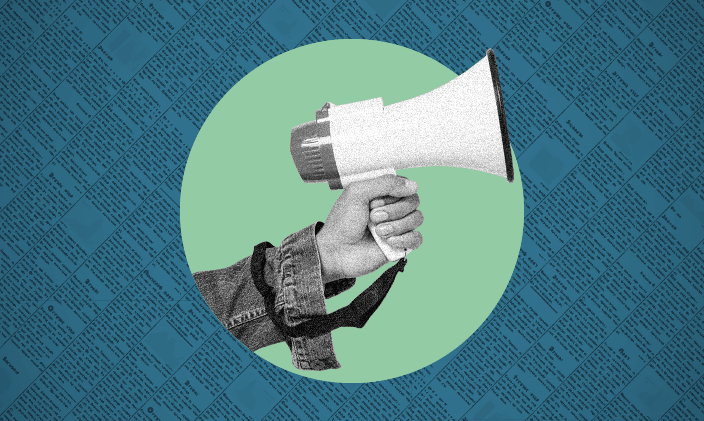National Alliance on Mental Illness and University of Phoenix to Expand Educational Resources for Mental Health Professionals
By University of Phoenix
Partnership demonstrates commitment to addressing mental health needs by arming professionals with skills needed to provide help
PHOENIX, Oct. 21, 2015 — Currently, there are 61.5 million Americans impacted by mental illness [1]. Forty-two percent of Americans who seek counseling report they still experience barriers or obstacles to professional counseling for mental health issues, according to a survey from University of Phoenix® College of Social Sciences [2]. Based on these needs, the National Alliance on Mental Illness (NAMI) and University of Phoenix College of Social Sciences today announced a partnership designed to further inform programs and prepare counseling students to meet the needs of those experiencing mental health issues.
“This partnership demonstrates University of Phoenix College of Social Sciences’ commitment to engage with industry leaders to ensure our programs provide students with the skills they need to succeed in their careers as mental health practitioners and in other professional roles that require a thorough understanding of mental illness,” said Constance St. Germain, Ed.D., executive dean for University of Phoenix College of Social Sciences. “We are proud to partner with NAMI to offer unique learning and training opportunities to our students that will ultimately further address the needs within the mental health industry.”
The University will work with the nation’s largest grassroots mental health organization to develop multimedia educational materials that will be available to students in the University’s counseling and human services programs and also to NAMI members on nami.org.
“NAMI is proud to partner with the University of Phoenix on educational materials and curriculum that will help people with mental illnesses, their families, as well as counseling and mental health students and professionals,” said Mary Giliberti, executive director, NAMI. “In addition, NAMI has launched a StigmaFree campaign to end the prejudice and discrimination that often discourages people from seeking help when they need it or impedes recovery from mental illness. We are pleased to have the University of Phoenix as a partner in working to help students and mental health professionals meet that challenge. Together, we will be building a foundation for a stigma free future.”
University of Phoenix College of Social Sciences’ partnership with NAMI is one of the many ways the University is committed to educating students as well as providing resources to communities to remove barriers to mental health care. The University has counseling skills centers in six markets across the country, which serve as educational training facilities that also provide free counseling services to the community.
“Many Americans who experience barriers to professional counseling are hindered by social stigma,” said Stephen Sharp, Ph.D., academic dean for the College of Social Sciences. “It’s important for professionals to have a clear understanding of the barriers that individuals face in order to offer the appropriate care and encourage those suffering from a mental illness to get the help they need.”
As another way to reflect its commitment to this issue, University of Phoenix is also teaming up with STEMConnector to co-host a Mental Health Forum on Nov. 3, 2015 in Washington, D.C. at the National Press Club. The event will feature experts from the mental health field including representatives from event co-sponsors the National Alliance on Mental Illness, and the National Board for Certified Counselors. Panel topics include Suicide Awareness, Human Trafficking and Exploitation, Integrative Health: The Mind and Body Connection and Mental Health and the Criminal Justice System.
About National Alliance on Mental Illness
NAMI is the nation’s largest grassroots mental health organization dedicated to improving the lives of Americans affected by mental illness. NAMI provides free education programs and support groups for individuals and families affected by mental illness. For more information, see www.nami.org/programs and www.nami.org/stigmafree.
About University of Phoenix College of Social Sciences
University of Phoenix College of Social Sciences offers programs in human services, psychology and counseling. The college’s curriculum seeks to empower individuals who wish to enhance their skills for career entry or advancement in the helping professions. Curriculum is regularly updated to meet accreditation and/or national and state professional standards. University of Phoenix College of Social Sciences faculty members are experienced professionals, holding advanced degrees. Many sit on state licensure and accreditation boards as well as professional committees. For more information, visit www.phoenix.edu/socialsciences.
About University of Phoenix
University of Phoenix is constantly innovating to help working adults move efficiently from education to careers in a rapidly changing world. Flexible schedules, relevant and engaging courses, and interactive learning can help students more effectively pursue career and personal aspirations while balancing their busy lives. As a subsidiary of Apollo Education Group, Inc. (Nasdaq: APOL), University of Phoenix serves a diverse student population, offering associate, bachelor’s, master’s and doctoral degree programs from campuses and learning centers across the U.S. as well as online throughout the world. For more information, visit www.phoenix.edu.
[1] National Institutes of Health, National Institute of Mental Health.(n.d.) Statistics: Any Disorder Among Adults. http://www.nimh.nih.gov/statistics/1ANYDIS_ADULT.shtm
[2] The 2015 survey was conducted online within the United States by Harris Poll on behalf of University of Phoenix September 28 – October 8, 2015, among 1,014 U.S. adults ages 18 and older. For complete survey methodology, including weighting variables, please contact Jennifer.Marshall@apollo.edu.


